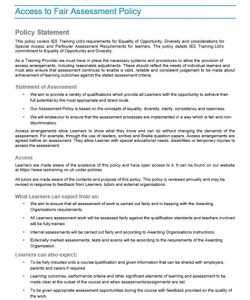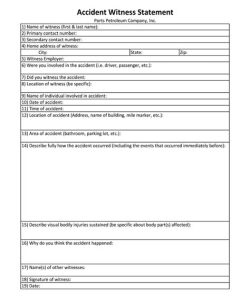Creating a robust Bribery Act Policy Statement is essential for businesses to demonstrate their commitment to lawful and ethical practices. This document serves as a declaration of intent to prevent bribery and corruption in all business dealings and relationships. A well-crafted policy statement not only outlines the organization’s stance against bribery but also sets the tone for a culture of integrity and transparency.
The importance of a Bribery Act Policy Statement cannot be overstated. It is a critical component of an effective compliance program. The policy must be clear, concise, and accessible to all employees and stakeholders. It should outline the responsibilities of individuals within the company and the procedures for reporting suspected bribery. This ensures that everyone is aware of their role in upholding the company’s ethical standards.
Moreover, a comprehensive policy statement acts as a deterrent to potential bribery and corruption. It signals to employees, partners, and third parties that the organization has zero tolerance for such activities. By establishing firm guidelines and consequences for breaches of policy, companies can protect themselves from legal issues and reputational damage.
Understanding the Bribery Act
The UK Bribery Act 2010 is one of the most stringent anti-corruption laws in the world. It introduced an offense of corporate failure to prevent bribery and made it illegal to offer, promise, give, request, agree, receive, or accept bribes. Understanding the scope and implications of this Act is crucial for businesses operating within or in connection with the UK.
One of the key aspects of the Bribery Act is the ‘adequate procedures’ defense. This allows an organization to defend itself against charges of failing to prevent bribery by demonstrating that it had put in place adequate procedures designed to prevent persons associated with it from undertaking such conduct.
Training and awareness are fundamental to ensuring compliance with the Bribery Act. Employees at all levels should be educated about the risks of bribery and the steps the company has taken to mitigate these risks. Regular training sessions can help reinforce the importance of the policy and keep it at the forefront of employees’ minds.
It is also important for businesses to conduct regular risk assessments. These assessments help identify areas of the business that are particularly vulnerable to bribery and corruption. Once identified, these risks can be managed and mitigated through targeted policies and controls.
Developing Your Bribery Act Policy Statement
When developing a Bribery Act Policy Statement, it is important to tailor it to the specific needs and risks of your organization. The policy should reflect the nature, scale, and complexity of the business’s operations. It should also be aligned with the company’s values and culture.
The policy statement should start with a message from the top, expressing leadership’s commitment to preventing bribery and corruption. This sets a clear expectation for behavior within the organization and emphasizes the importance of the policy.
Clear definitions of what constitutes bribery and corruption should be included in the policy. This helps to remove any ambiguity and ensures that all employees have a common understanding of prohibited behaviors.
The policy should also outline the responsibilities of different roles within the organization. This includes the duties of the board, senior management, compliance officers, and all employees. Clearly defined roles and responsibilities make it easier to enforce the policy and hold individuals accountable.
Implementing and Enforcing the Policy
Implementation of the Bribery Act Policy Statement is as important as its development. A policy that is not effectively implemented is of little value. Therefore, it is essential to ensure that the policy is communicated to all employees and relevant third parties.
Enforcement of the policy should be consistent and firm. Any breaches of the policy must be dealt with swiftly and fairly. This may involve disciplinary action, up to and including dismissal, depending on the severity of the breach.
Monitoring and review are also critical components of policy implementation. The effectiveness of the policy should be regularly reviewed, and any necessary adjustments should be made. This ensures that the policy remains relevant and effective in preventing bribery and corruption.
Finally, it is important to provide a safe and confidential means for employees to report any concerns or suspicions of bribery. This could be through a whistleblower hotline or a designated compliance officer. Encouraging a speak-up culture helps to detect and prevent bribery at an early stage.
In conclusion, a Bribery Act Policy Statement is a vital tool for businesses in the fight against bribery and corruption. It serves as a clear declaration of the company’s values and commitment to ethical conduct. By understanding the legal requirements, developing a tailored policy, and implementing it effectively, businesses can protect themselves from the risks associated with bribery and maintain their integrity in the marketplace.
Remember, the key to a successful Bribery Act Policy Statement is not just in its creation but in its active enforcement and continual improvement. It should be a living document that evolves with the business and the regulatory landscape. With the right approach, your policy statement can contribute significantly to the establishment of an ethical and compliant corporate culture.



